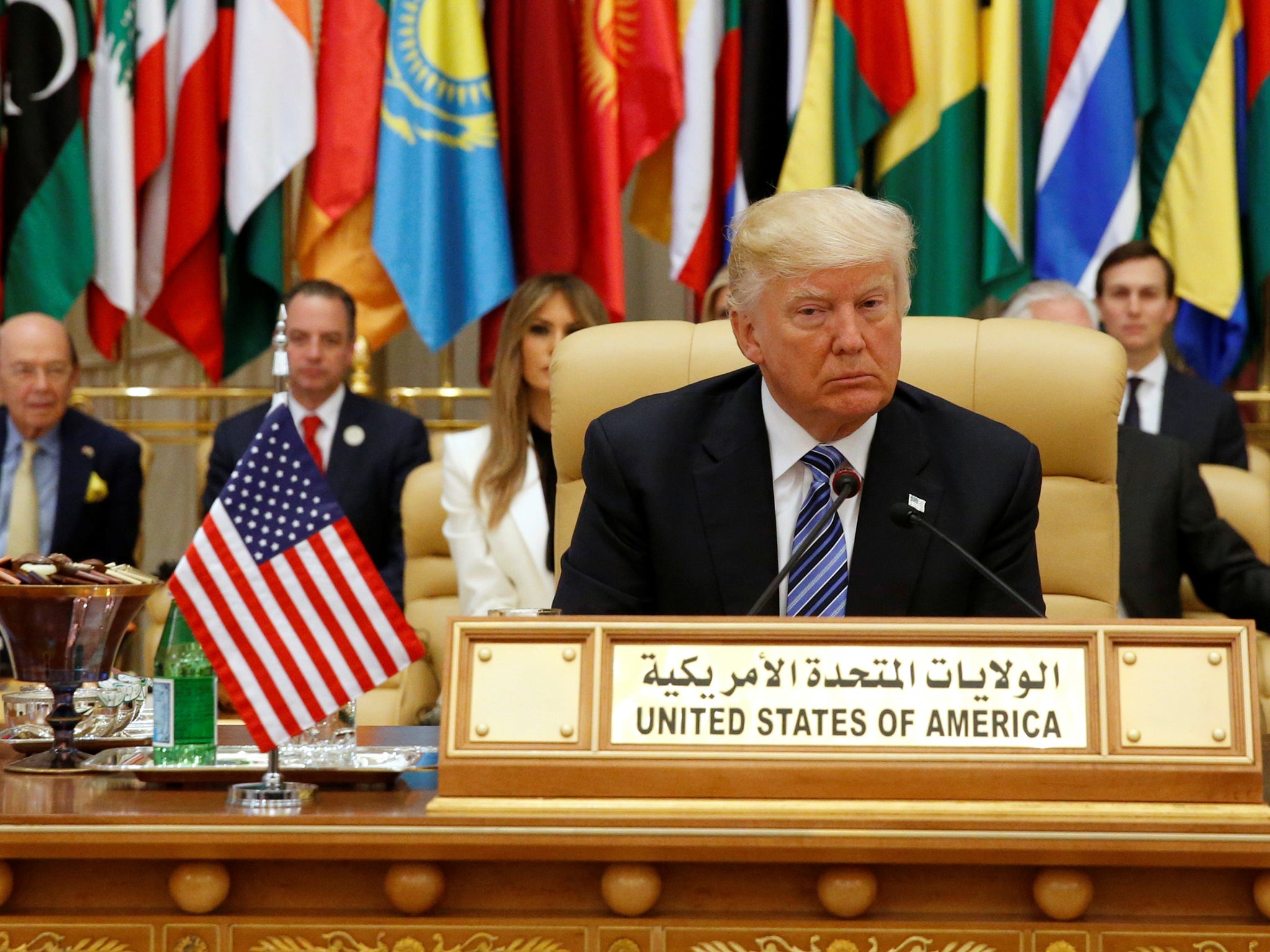Donald Trump is 'greatest threat to international security', says former MI6 head
Sir John Sawers says US President's policies are 'going to have a major disruptive effect' globally

Your support helps us to tell the story
From reproductive rights to climate change to Big Tech, The Independent is on the ground when the story is developing. Whether it's investigating the financials of Elon Musk's pro-Trump PAC or producing our latest documentary, 'The A Word', which shines a light on the American women fighting for reproductive rights, we know how important it is to parse out the facts from the messaging.
At such a critical moment in US history, we need reporters on the ground. Your donation allows us to keep sending journalists to speak to both sides of the story.
The Independent is trusted by Americans across the entire political spectrum. And unlike many other quality news outlets, we choose not to lock Americans out of our reporting and analysis with paywalls. We believe quality journalism should be available to everyone, paid for by those who can afford it.
Your support makes all the difference.America led by Donald Trump is the greatest menace facing the world today, Sir John Sawers, a former head of MI6, has declared, warning the policies being pursued by the divisive US President are “going to have a major disruptive effect” globally.
Sir John was speaking at the annual Herzliya security conference in Israel where senior public figures from the field of politics, military, and intelligence were asked who, in their view, presented the greatest threat to international security.
Some said it was Isis, others Islamist terrorists and North Korea with its nuclear capabilities. Others, perhaps mindful of where they were, talked of Iran and the Lebanese Shia militia, Hezbollah, both considered mortal enemies by the Jewish state.
But Sir John, who was the last chief of Britain’s Secret Intelligence Service, stated: “I have got serious reservations about Donald Trump as President of the United States.”
He continued: “The biggest threat the world faces is how we all adjust to the progressive withdrawal of responsible American leadership and the network of alliances that America maintained with Europe, with Asian countries and the partnerships they had across the region.”
The chaotic presidency of Mr Trump has been mired in controversy with investigations into his secret links with Russia; his attempts to ban travel to the US from a number of Muslim countries; fractious relations with Nato and EU; the US pulling out of the Paris climate agreement; threats of a trade war; threats to dismantle the Iran nuclear accord and contradictory and confusing positions in the current confrontation between Qatar and the Saudi led Gulf Sunni states.
The coming to power of Mr Trump was, Sir John acknowledged, a manifestation of the populist and isolationist mood in America exacerbated by military failures in Iraq and Afghanistan.
But the consequences said Sir John, were “now having a major impact in the security world, the behaviour of countries trying to take advantage of it, and I think how we adjust to that, the behaviour of other countries trying to take advantage of it, which poses the biggest threat in the world.”
During an arms-selling trip to Saudi Arabia, Mr Trump had accused Iran of fermenting terrorism, and, going on to Israel, he has called for an alliance of Saudi Arabia and other Sunni states against Shia Iran.
But Sir John, who had also served as the UK’s ambassador to the UN, pointed out that Iran is “an emerging country that is becoming the most powerful in the region” and “enjoys better prospects than Saudi Arabia”.
The US and the West, he argued, needed to be careful to form an alliance with Riyadh, which has failed to carry out essential reforms, against Iran.
The issue of alliances was also crucial for post-Brexit Britain, Sir John maintained after his appearance at the conference forum.
There was a danger that Britain would be an outsider with “nose pressed to the window” of the EU while international decisions are being made.
“We will be part of Nato, yes. But as the US withdraws from global leadership,” he asked, “can we rely on the alliance for anything more than territorial defence? The regions the US has protected since 1945 have to determine their own defence and security: that includes Europe”.
He welcomed Emmanuel Macron’s offer to keep the EU door open for Britain, “but I sadly doubt that our current leaders will countenance a strategic rethink. So, as we exit the EU, we need to remain joined to our continental partners, not just through Nato, but in the painstaking work of building a common foreign and security policy.”
But, Sir John concluded: “I see little effort to find a solution that enables Britain and the whole of Europe to benefit from our talents. If we can no longer help shape the world, others will do it for us, and Britain will have to lump the consequences.”
Join our commenting forum
Join thought-provoking conversations, follow other Independent readers and see their replies
0Comments